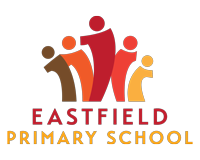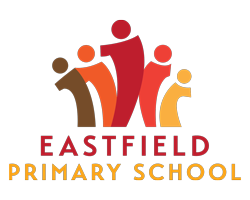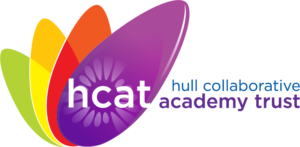Science
Curriculum Statement for Science
The national curriculum for science aims to ensure that all pupils:
- develop scientific knowledge and conceptual understanding through the specific disciplines of biology, chemistry and physics
- develop understanding of the nature, processes and methods of science through different types of science enquiries that help them to answer scientific questions about the world around them
- are equipped with the scientific knowledge required to understand the uses and implications of science, today and for the future.
Intent
At Eastfield Primary school, we recognise the importance of science in everyday life. Our curriculum offers the opportunity to develop scientific knowledge and the skills that pupils need to maintain a curiosity and understanding of the world. All children will improve their ‘scientific thinking’ through our key principles:
- Discover
- New things
- View the world around us
- Explore
- Be curious
- Be confident to share opinions
- Explore ideas
- Have great fun, hands on
- Ask real questions
- Make mistakes and learn from them
- Experience
Implementation
All children will be given the opportunity to ask questions and develop an understanding of and a curiosity for the world around them.
Our planning is developed from the National Curriculum for science. The focus for each unit of science are the key substantive knowledge and disciplinary knowledge objectives. Lessons are planned so that children can explore and develop their knowledge through a hands-on investigative approach. There is also a focus on the key vocabulary which will be specifically taught and developed through lessons and across the wider curriculum.
The medium term plan sets out the key substantive and disciplinary knowledge, the key vocabulary and a clear sequence of learning. Through use of a ‘Think 1’ activity they are able to build on previous knowledge and reinforce any gaps in the learning. A knowledge organiser and key vocabulary for the unit is then shared with the children and is used as a reference thoughout the unit. At the end of the unit, an assessment task is used to assess the understanding of substantive and where possible, disciplinary knowledge. Misconceptions will be addressed to ensure that pupils have the best understanding before moving on to the next unit of work.
In our planning, the working scientifically objectives have been spead out across each year. This is to ensure that the skills well matched to the substantive knowledge to enable them to be developed effectively. There is also an opportunity to ‘preload’ knowledge that will be acquired in the future so pupils see the relevance of this work for their future learning.
Planning involves teachers creating engaging lessons, often involving high-quality resources to aid understanding of conceptual knowledge. Each lesson will begin with a starter activity to develop their scientific thinking. Key vocabulary is also shared at the start of each lesson. Scaffolding and support will be provided for pupils that have SEND requirements so that they can reach their full potential. There will also be ‘next step’ opportunities throughout the unit of work to enable higher ability pupils to extend their scientific thinking. Teachers use precise questioning in class to test substantive knowledge and skills and assess children regularly to identify those children with gaps in learning, so that all children have the opportunity to be successful.
Where possible, enrichment opportunities are also planned to create a sounder understanding of scientific concepts. Children are offered visits, trips and visitors to complement and broaden the curriculum. For example, in year 1 pupils visit the Yorkshire Wildlife Park to experience ‘real life ‘ animals. In Year 5, a planetarium is used to enable pupils to experience this abstract concept of ‘space’. These are purposeful and link with the knowledge being taught in class.
Impact
Children at Eastfield Primary School overwhelmingly enjoy science and this results in motivated learners with sound scientific understanding.
This leads to higher standards in science in knowledge, skill and understanding.
Pupils will develop integral skills, such as strategic thinking, learning, solving problems and making informed decisions, needed in life and career.
Further Information
‘I have seen my child develop socially and academically during her time there.’
‘Eastfield Primary School is a safe environment for my child to learn and grow.’
‘My child has progressed in lots of different ways whilst being at Eastfield primary school.’
‘The curriculum is delivered in a way that makes his education fun & exciting.’
‘My child thoroughly enjoys coming to school and is making good progress.’
‘It’s good to see the kids smile on their faces before school and after school.’
‘I’m very happy with my child’s progress, and can see how happy he enjoys his time learning.’
‘Excellent school that manages to involve all pupils.’
‘Members of our family have been pupils at Eastfield since 1975 – highly recommended.’
‘Having opportunities for the children to take part in activities outside the classroom is a real positive.’
‘Excellent and varied extra curricular activities.’
‘An outstanding school both academically and in sporting achievements with friendly staff.’
‘Eastfield has given my children the best start in their educational journey.’
‘Brilliant school. My daughter has absolutely thrived since being here.’
‘Good updates on current activities and curriculum. Supportive staff.’
‘The school ethos is fantastic – my daughter comes home with a happy story every day.’




